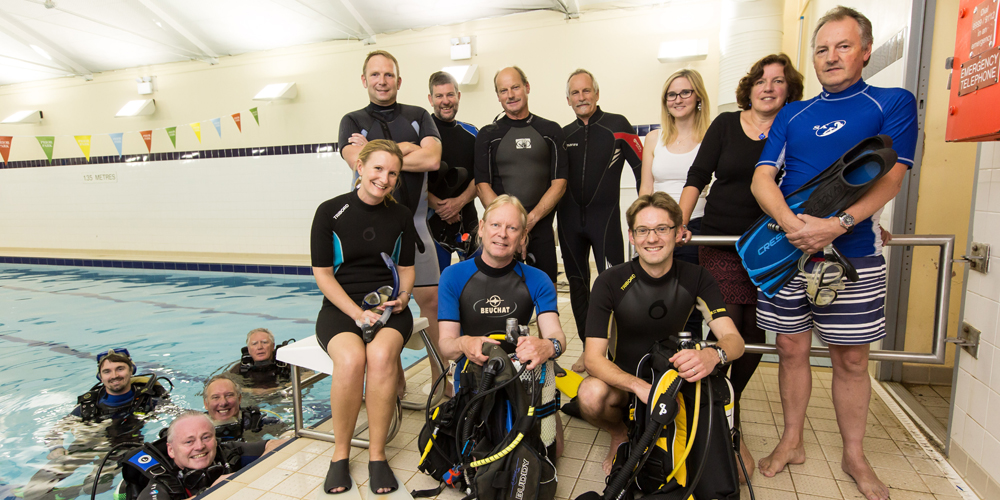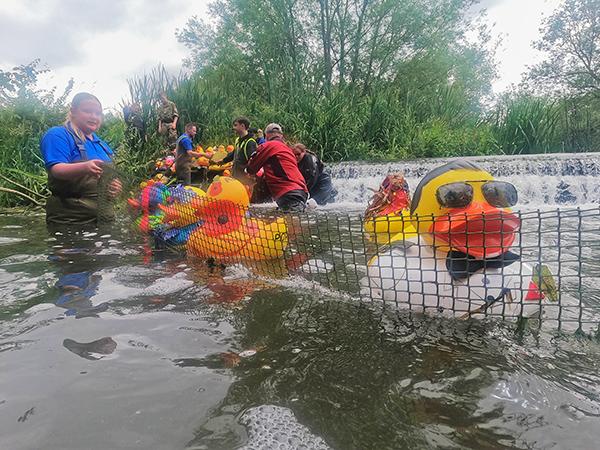When planning club dives a few things need to be taken into account to ensure it’s safe and enjoyable for all.
Authorised dives
Diving needs to be conducted in accordance with BSAC Safe Diving and the Diving Officer and diving member responsibilities.
Whilst not wishing to define the minimum number of persons present necessary to make a dive official, the National Diving Committee advises Diving Officers to consider the qualifications and experience of those seeking approval of their dive, and take into account the dive plan, Dive Manager, risk assessment and safety precautions carefully before granting approval.
Guarding against unauthorised dives
There is, no way of preventing members taking part in dives which do not have the Branch Diving Officer’s approval. BSAC Public Liability Insurance still applies so long as the dive is carried out in accordance with BSAC diving recommendations (including a risk assessment). One danger of such dives is that Ocean Divers or partially trained divers might be tempted or encouraged to take part in dives which are beyond their capabilities.
The Branch Diving Officer should guard against this by explaining to and reminding all members of the dangers of diving without adequate training, supervision and / or control, and by asking experienced divers not to encourage members to take part in dives for which they are not prepared or experienced. It should be remembered "Ocean and trainee divers are ONLY allowed to dive on properly managed dives".
Dives outside Safe Diving
Occasionally members insist on going ahead with plans for dives that the Branch Diving Officer considers unwise, unsafe or beyond the experience of someone in the party (see Diving Officer and diving member responsibilities). In these circumstances the Branch Diving Officer's reservations must be expressed in writing to all members involved, and a copy kept in the Branch records. Inclusion as part of the Branch Diving Officer’s report at the next Committee Meeting will ensure there is a record in the Minutes. Where the advice of the Branch Diving Officer is ignored or disregarded, the Branch Diving Officer should consider taking disciplinary action against the individuals. Advice is given in the document "BSAC Volunteer disciplinary procedure"
Note: Taking no action could compromise the Diving Officer’s defence if a claim were made. Taking action as described above will help safeguard the Diving Officer and the branch committee in the event of an accident and any subsequent legal proceedings that may follow, in that it will show that they made reasonable efforts to forewarn, prevent and discourage those involved.
Club diving programme
All clubs should make an effort to plan a programme of dives and publish it at the start of the diving season. It should give the date, venue and name of the Dive Manager for each event. The diving programme should not be restricted to listing one-day diving meetings, but should include club diving holidays, Bank Holiday long weekend expeditions, social events and other dates which members need to know.

Why have a dive programme?
The varied programme of dives should provide for all levels of ability, from initial open water dives for Ocean Divers to adventurous dives for the more experienced. For those under training, remember that BSAC has published models for a series of structured open water lessons for all diver grades. These may require experience of different diving environments and sites, both coastal and inland.
In a small club and with a little planning, most members’ interests can be catered for at the same site. It may not be quite so easy for a larger club, or where there are a lot of trainees who need to undertake particular open water lessons or gain particular types of diving experience. Some degree of dive site segregation may be desirable.
The Diving Officer or expedition leader may recommend that a number of smaller groups operate from several different sites on the same day, rather than all using the same site, therefore avoiding overcrowding. Splitting interests in this way can also take place when the club is meeting at one site. In this case, there should be separate Dive Managers; one for each group.
Yet another variation might be to arrange advanced diving in the morning and open water lessons for Ocean and Sports Diver candidates in the afternoon. Experienced divers should understand that the introduction of beginners to the sport in this way is part of their own development as a responsible and more highly qualified diver. It gives the beginner the opportunity to acquire skills and techniques under the guidance of an experienced diver, whilst the latter is given the opportunity to accept responsibility and develop leadership and instructional skills.
Experienced divers
The Diving Officer should realise that experienced divers and instructors are entitled to their fun. Nothing will kill their interest as active club members more quickly than always being expected to look after trainees. The Diving Officer or expedition leader should therefore plan dives for the experienced and other specialised interests groups as part of the annual diving programme; if necessary, restricting the dive to divers qualified to the planned level. This restriction also encourages members to gain higher qualifications so that they are qualified to take part.
Experienced divers should also be encouraged to become involved with the expeditions involving divers from more than one club. Clubs can also arrange similar charters or land based expeditions for their more experienced divers.
Special interests
Diving is a diverse sport and there are divers who engage in underwater photography, underwater archaeology, marine studies and other specialised areas. It should be possible to engage these pursuits in a club dive but consideration should be given to these members who might want to dive with divers having the same interests.








